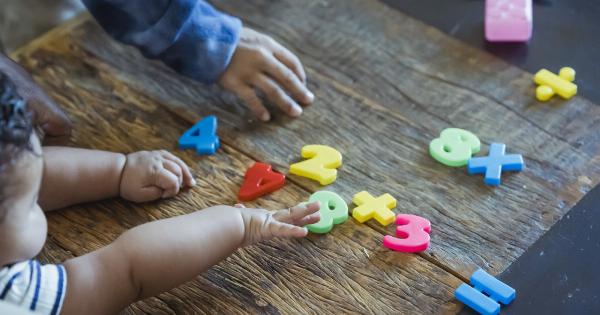One of the most common debates among parents, educators, and experts revolves around the appropriate age for a child to start dating.
The concept of dating at a young age can evoke mixed emotions and concerns, as parents grapple with the idea of their child navigating the complex world of romantic relationships. While opinions on this matter may vary, it is essential to consider various aspects before determining what the right age might be.
Social and Emotional Maturation
The emotional and social development of a child plays a vital role in determining if they are ready for dating. Adolescence is a time of significant changes, both physically and emotionally.
Teens start developing a sense of self-identity, exploring their interests, and forming deeper connections with others. These aspects are crucial for fostering healthy relationships.
Although there is no specific age that guarantees emotional readiness for dating, it is generally believed that most teenagers around the age of 16 or 17 demonstrate a better grasp of their emotions, are more independent, and possess better decision-making skills. It’s important for children to develop a strong foundation of self-awareness and emotional resilience before venturing into romantic relationships.
Understanding and Communication
Effective communication and understanding are essential elements of a successful romantic relationship. Before children begin dating, they should possess the skills necessary to express their feelings, listen actively, and negotiate boundaries.
Healthy relationships are built on mutual respect, empathy, and open communication.
These skills can be honed through extensive interactions with friends, family, and peers.
Encouraging children to participate in group activities, clubs, and community engagements can enhance their social skills and provide ample opportunities for practicing effective communication. Once they have mastered these skills, they are more likely to navigate dating experiences with greater insight and success.
Parental Influence and Guidance
Parental guidance plays a crucial role in determining when a child is ready to start dating. Parents need to take an active interest in their child’s social life and monitor their budding romantic interests.
By maintaining open lines of communication, parents can become a trusted source of advice and support for their children.
It is essential for parents to discuss dating openly and honestly with their children. These conversations should address topics such as consent, boundaries, safe relationships, and the emotional aspects of dating.
Parents can impart their wisdom and experiences, offering guidance while allowing their children to make their own decisions.
Individual Maturity and Readiness
Every child is unique, and there is no one-size-fits-all answer to determining the right age to start dating. Individual maturity and readiness should be considered when deciding whether a child is prepared for dating.
Some children may mature earlier than others, demonstrating greater emotional intelligence and responsibility. These children might be ready to explore romantic relationships at an earlier age.
Conversely, some children may require more time to develop the necessary skills and confidence before entering the dating scene. It is crucial to respect and consider each child’s individual development and readiness.
Peer Influence and External Factors
Peer influence and external factors can significantly impact a child’s decision to start dating. It is common for adolescents to feel pressure to engage in romantic relationships due to societal and peer expectations.
The desire to fit in and be included can sometimes cloud one’s judgment.
As parents and educators, it is essential to educate children about healthy relationships and the importance of making decisions based on their own values and personal readiness, rather than succumbing to external pressures.
Encourage children to focus on themselves, their personal goals, and their individual growth, rather than feeling compelled to participate in romantic relationships solely for the sake of conformity.
Setting Boundaries and Monitoring
When children express an interest in dating, it is crucial for parents to establish clear boundaries and guidelines. These boundaries should encompass appropriate behavior, curfews, and expectations regarding open communication.
Monitoring and maintaining an open dialogue will provide parents with an opportunity to ensure their child’s safety and emotional well-being.
As children start dating, parents should consider tasks such as setting curfews, meeting their child’s partner, and fostering an atmosphere where the child feels comfortable discussing their experiences with dating.
These measures promote healthy relationships and allow for intervention if any concerning situations arise.
Education on Consent and Personal Safety
One aspect of dating that requires particular attention is consent and personal safety. Parents should educate their children about affirmative consent, the importance of setting and respecting boundaries, and recognizing signs of abusive behavior.
Providing this knowledge equips children with the tools necessary to navigate potentially difficult situations, while empowering them to prioritize their own well-being above all else.
Conclusion
Choosing the right age for a child to start dating is a complex decision that requires careful consideration of various factors.
While there is no one definitive answer, understanding a child’s emotional and social development, promoting effective communication skills, providing parental guidance, and considering individual readiness are essential components.
Ultimately, parents should be actively involved in their child’s life, fostering an environment where open conversations about dating and relationships can take place.
By doing so, parents can help navigate their children through this exciting and often challenging phase with support and guidance.






























